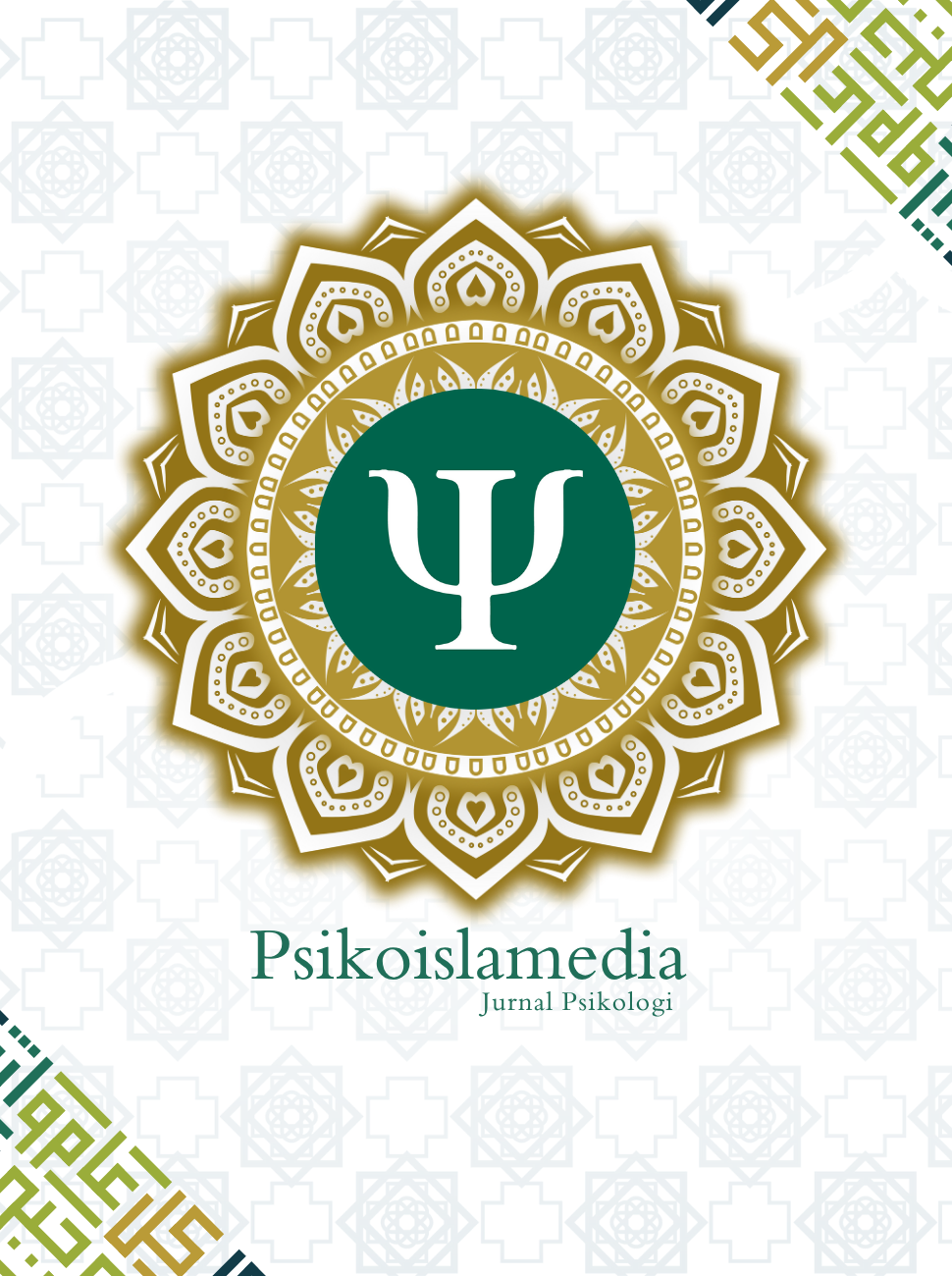THE CONCEPT OF MUSLIM’S TAQWA AND ISLAMIC PSYCHOLOGY MEASUREMENT
DOI:
https://doi.org/10.22373/psikoislamedia.v9i2.23045Keywords:
Concept, Taqwa, MeasurementAbstract
"Taqwa" is a familiar term among Muslims, serving as a reminder to continuously enhance one's piety. It has also been incorporated into the national education goals in Indonesia, extending its implementation to the field of education and industry. This study aims to develop and measure the concept of taqwa. Employing a quantitative method and purposive sampling techniques, data collection utilized the Muslim Piety Scale (MPS), developed by the researcher based on Kuning's (2018) taqwa concept. The study involved 227 Muslim students from the Faculty of Psychology at the Islamic University of Riau (UIR). Data analysis was conducted using Smart PLS 3.0 software. Findings revealed that the taqwa construct's four dimensions had items reflecting each component of taqwa. The dimension of controlling anger made the most dominant contribution to the taqwa construct, followed by forgiveness, seeking forgiveness (istighfar), and generosity. The developed taqwa scale from this study can serve as a tool for measuring piety in educational and industrial settings, specifically for individuals of the Islamic faith.
Downloads
Published
Issue
Section
License
Authors who publish in this Journal agree to the following terms:
- Authors retain copyright and grant the journal right of first publication with the work simultaneously licensed under Attribution-ShareAlike 4.0 International (CC BY-SA 4.0) allows others to share the work with an acknowledgment of the work's authorship and initial publication in this journal.
- Authors are able to enter into separate, additional contractual arrangements for the non-exclusive distribution of the journal's published version of the work (e.g., post it to an institutional repository or publish it in a book), with an acknowledgment of its initial publication in this journal.
- Authors are permitted and encouraged to post their work online (e.g., in institutional repositories or on their website) prior to and during the submission process, as it can lead to productive exchanges, as well as earlier and greater citation of published work. (See The Effect of Open Acces)














